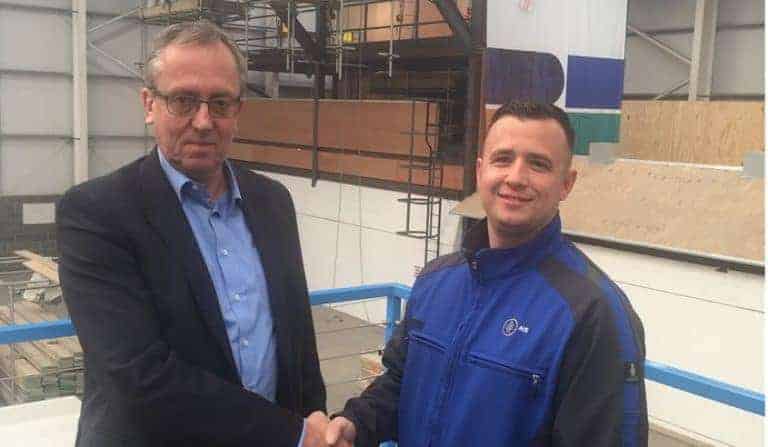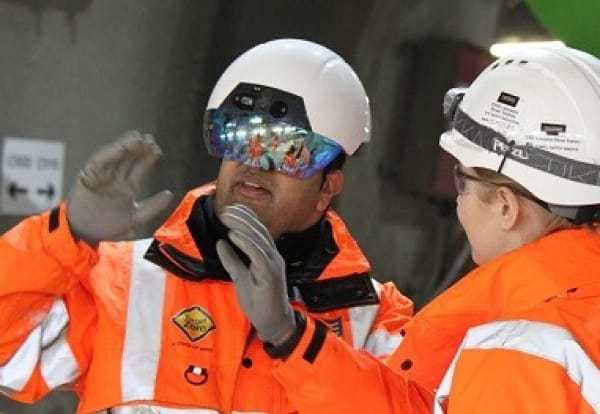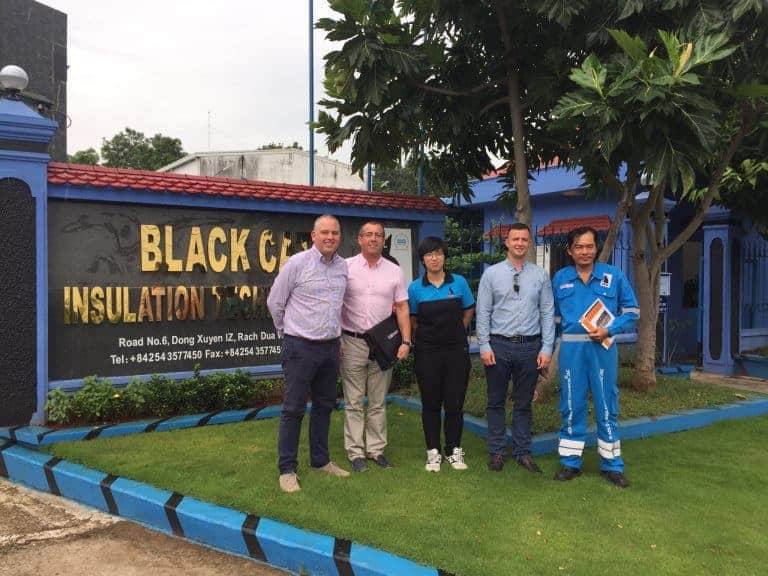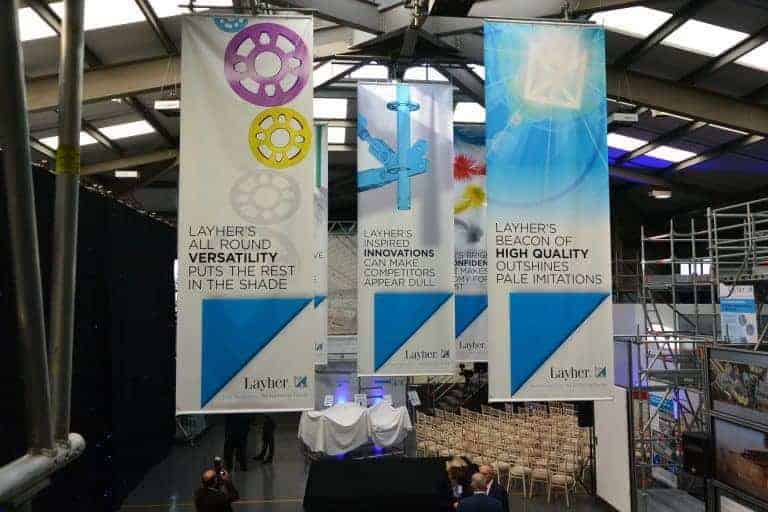Generation UNI Roof makes history with Kew Gardens
Generation UK demonstrate why Generation UNI Roof is the Market leader in Temporary Roofing.
Generation UK were tasked to provide all access and Temporary Roof equipment for a project to bring the amazing Royal Botanic Kew Gardens Glasshouse back to its former glory! Kew Gardens Temperate House opened in 1862 and to date is the largest surviving Victorian glasshouse in the world. To bring this incredible Grade I listed building back to its wonder it took over 4 years. The bulk of the project comprised of the removal and replacement of all of the original glass panes, as well as repair and maintenance of the steel frame. Working over such a long time frame meant that our client would be working all year round, whatever the weather. The Generation UNI Roof meant that work could continue all year and kept the project to its time-scales come rain or shine.
The equipment formed three different structures. The most technically challenging being the 8000m2 all season Temporary Roof system; the UNI Roof spanned 50m over the central glasshouse. The roofing showcased its compatibility, versatility, weather protection and safe and quick erection; showing how the Generation UNI Roof is so much more than just a Temporary Roofing structure. The customer knew that such a large and important job needed the help of the company that supply’s the market leader in Temporary Roofing; The Generation UNI Roof.
Generation Frimley worked closely with their client to provide over 700 tons of equipment, this was delivered directly to the site of Kew gardens using Generations large and reliable fleet.
Interested in finding out more about the Generation UNI Roof?
To bring this incredible Grade I listed building back to its wonder it took over 4 years. The bulk of the project comprised of the removal and replacement of all of the original glass panes, as well as repair and maintenance of the steel frame. Working over such a long time frame meant that our client would be working all year round, whatever the weather. The Generation UNI Roof meant that work could continue all year and kept the project to its time-scales come rain or shine.
The equipment formed three different structures. The most technically challenging being the 8000m2 all season Temporary Roof system; the UNI Roof spanned 50m over the central glasshouse. The roofing showcased its compatibility, versatility, weather protection and safe and quick erection; showing how the Generation UNI Roof is so much more than just a Temporary Roofing structure. The customer knew that such a large and important job needed the help of the company that supply’s the market leader in Temporary Roofing; The Generation UNI Roof.
Generation Frimley worked closely with their client to provide over 700 tons of equipment, this was delivered directly to the site of Kew gardens using Generations large and reliable fleet.
Interested in finding out more about the Generation UNI Roof? 10K Fine After Scaffolder Fell Three Meters
A Scaffolding company has been fined after a worker fell three metres and lost consciousness.
Peterborough Magistrates’ Court heard how, in February 2016, a scaffolder of HI-Pro Scaffolding Ltd was dismantling a temporary roof scaffold when he fell about three metres through the temporary roof, onto the fixed roof below. The scaffolder was knocked unconscious, spent two days in hospital and suffered a broken thumb which required metal pins to be fitted. In total, he was off work for two months. An investigation by the Health and Safety Executive (HSE) into the incident found that Hi-Pro Scaffolding Ltd had not planned the work properly. There was a lack of communication and the employee was not trained or experienced in this type of scaffold. The company also failed to provide suitable personal protective equipment to prevent a fall. HI-Pro Scaffolding Ltd of Old Ford House, Old Ford Lane, Stonely, Kimbolton, has been fined £10,000 for breaching Section 2(1) of the Health and Safety at Work etc Act 1974 and been ordered to pay costs of £3621.00. Speaking after the hearing, HSE inspector John Berezansky said: “This case highlights the importance of following industry guidance to plan the safe erection and dismantling of scaffolding”.The New Industrial Revolution Is Here With Industry 4.0
A range of exciting collective technologies known as Industry 4.0 is set to launch the new industrial revolution.
This fourth industrial age however, could see more than 600,000 existing construction jobs automated by 2040, freeing up individuals for essential re-training, according to a report released from international consultancy and construction company, Mace. It’s all part of intensive research exploring how the construction industry will need to change in order to meet future 21st century challenges. Their findings also cited the need for a major re-skilling of the workforce, in order to meet the demands of this new technology. They also warn the industry will lose out on potential productivity benefits worth £25bn, if it fails to train a new generation of hi-tech savvy workers.The Important Figures
It’s a fact output per worker has remained flat in construction in the past decade. Contrast this to a 30 per cent improvement in the service sector, and a booming 50 per cent increase in manufacturing.Transforming Technology
The transformational technology making up Industry 4.0 is already available, and some businesses are already seeing the productivity benefits of using cloud computing and robotics. We can add to this, artificial intelligence and autonomous vehicles to help form a clear picture of where things are going. The whole way in which buildings are constructed will change, with quality of life, safety, industrial output, and the environment all being improved over time.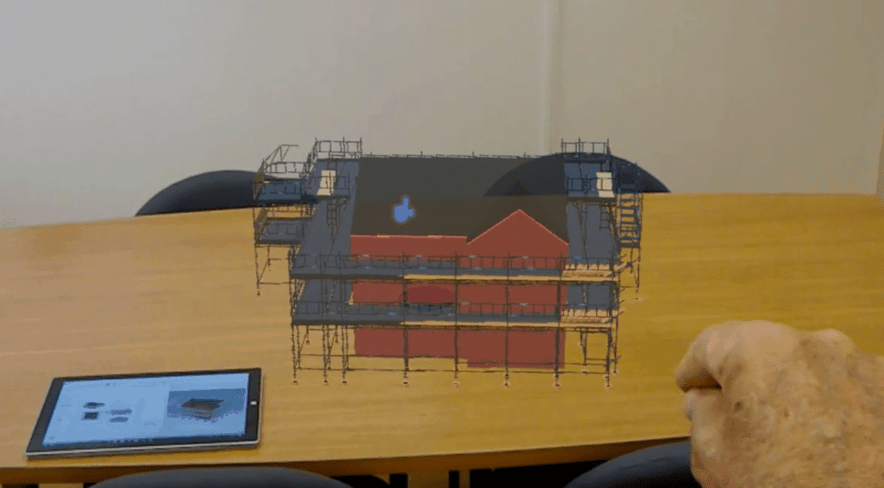
A Leadership View
Mark Reynolds, Mace’s Chief Executive, and skills lead on the Construction Leadership Council, said: “Everyone now acknowledges the current skills shortages need to be addressed. “Our latest report high-lights the opportunities the digital revolution can offer, how we can dramatically close the future skills gap and how we can meet the £25bn ‘productivity challenge’. “The recommendations we have laid out will go some way towards addressing these issues. The industry, our training bodies and government need to work together to take full advantage of everything that Industry 4.0 can offer.”Recommendations For The Industry
Mace offered three invaluable recommendations including the introduction of the latest 3D printing technologies and virtual reality tools. Industrial training programmes, school construction clubs and various other courses could play a huge role in this. Making such tools attractive to students and industry recruits would pay dividends in the long run. Secondly, by commissioning large-scale sector-wide research and working with Government bodies like the ONS and CITB, the construction industry will be able to ensure its skills profile is changing to meet actual need. Thirdly, we need to completely revolutionise our traditional education programmes. Mace believes as they are, current apprenticeship and training reforms will not go far enough to prepare the workforce for Industry 4.0. An updating of the curriculum to reflect the modern methods of construction and off-site assembly is essential to this end.Important Conclusions
It’s clear the industry must work not just with the government, but also with training and education providers to radically transform how workers are trained. This should also include those not just entering the industry, but individuals seeking a new career. For the whole area of construction Industry 4.0 is a fresh chance to catch up with our competitors and deliver transformational growth in productivity. For more information or to download a full copy of the report click hereNASC Announces Special Guest Speakers for AGM
Baroness Karren Brady & Dr Mohed Altrad added to speaker lineup at NASC AGM & Ball.
The trade association for the scaffolding industry the NASC, has announced two special guest speakers at the Annual General Meeting and Ball this year. Baroness Karren Brady, CBE is a well-known business woman, and now TV personality and columnist. Having built her career in the male dominated world of football, Karren is a champion for women in business, skills and diversity. Her appearance at the AGM hints at the NASC’s key objectives under the new President, Des Moore’s tenure. Like the wider construction industry, the scaffolding sector has a poor record in attracting women into both on an off site roles, and also faces challenges in attracting and retaining skilled young people. The evening event will also feature Dr Mohed Altrad, the Syrian-born French entrepreneur and Founder/CEO of the Altrad Group. Dr Altrad has faced many of the challenges and opportunities that the business owners in the NASC community frequently contend with. As a successful entrepreneur who has made a considerable investment in UK construction businesses, his appearance reflects the NASC’s commitment to helping its members of all sizes grow their businesses. The awards will be presented across both the AGM and Ball. Baroness Brady, who is currently appearing in the BBC One Series The Apprentice, will present the NASC’s Apprentice of the Year Award. While Dr Altrad will present the new Project of the Year Award.
TRAD Southern completes Leon House project in record timing
TRAD Southern have successfully and safely erected 14,500m2 of system scaffolding on a conversion project at Leon House in Croydon. The work was completed in a record 54 days, beating the estimated programme by 16 days!
The combination of TRAD Southern and system scaffolding once again proves to be a successful partnership, building confidence with our repeat business customers and clearly displaying our professionalism and expertise within the scaffold industry.
Leon House is a 22-storey office building which was built in the 1960s, and is now being transformed into 256 residential apartments. Award-winning construction company Bouygues is overseeing the ambitious project at 233 High Street. The exterior conversion involves cleaning the entire building, replacing the existing windows and removing all existing balconies. The ground floor will be given over to commercial space, and residents will have access to a new rooftop garden.
The new 1.30m Altrix HD Beams were an integral part of TRAD Southern’s design, as they enabled huge and impressive spans to be bridged with ease. TRAD Southern’s Divisional Director Craig Hayes commented, “The beams are bigger and structurally stronger than other modular beams, meaning less are required, which saves on time and cost effectiveness for our clients.” The underground car park and local businesses were also able to remain open throughout the scaffold erection, and disruption to the local area was kept to a minimum allowing trade to continue as usual.
TRAD Southern are part of the TRAD Group of Companies. The TRAD Group have a nationwide coverage of system scaffold – they currently hold over 19,000 tonnes in addition to 66,000 tonnes of traditional Tube, Fitting and Boards – ensuring that they have the capability to build many large, complex projects. No other UK scaffolding group has TRAD’s capacity and level of equipment.
Wood Group wins multi million dollar refinery contract
Wood has been awarded a new multi-million dollar contract by Total, supporting their Lindsey Oil Refinery located in North Killinghome, Lincolnshire, UK. The five-year contract is to provide onshore maintenance services and includes the option to be extended up to two years.
Robin Watson, chief executive of Wood said: “We are strategically focused on leveraging our proven offshore track record of strong service, to broaden our downstream footprint in the UK; and this contract win achieves this.
“It was secured by the clear demonstration of our commitment to safety through efficient delivery of our innovative range of services to the oil and gas industry.
“Our extensive capabilities in offshore maintenance gained from over two decades of working with Total, position us uniquely to maximise the productivity while maintaining the integrity of this significant asset.”
The new contract will commence on 1 January 2018.
It builds on Wood’s support of Total’s assets across the globe, including their UK offshore portfolio. In 2015, the company secured a five-year contract to deliver engineering, procurement, construction and commissioning services to four of Total’s offshore assets and two onshore facilities in the UK continental shelf; the Alywn, Dunbar, Elgin and Franklin platforms, St Fergus Gas Terminal and Shetland Gas Plant (SGP).
Palmers Scaffolding Contracting Forward with Waste Energy Sector Success
Palmers Scaffolding UK has won a number of contracts utilising their modern access and construction expertise at several top waste energy plants throughout the country.
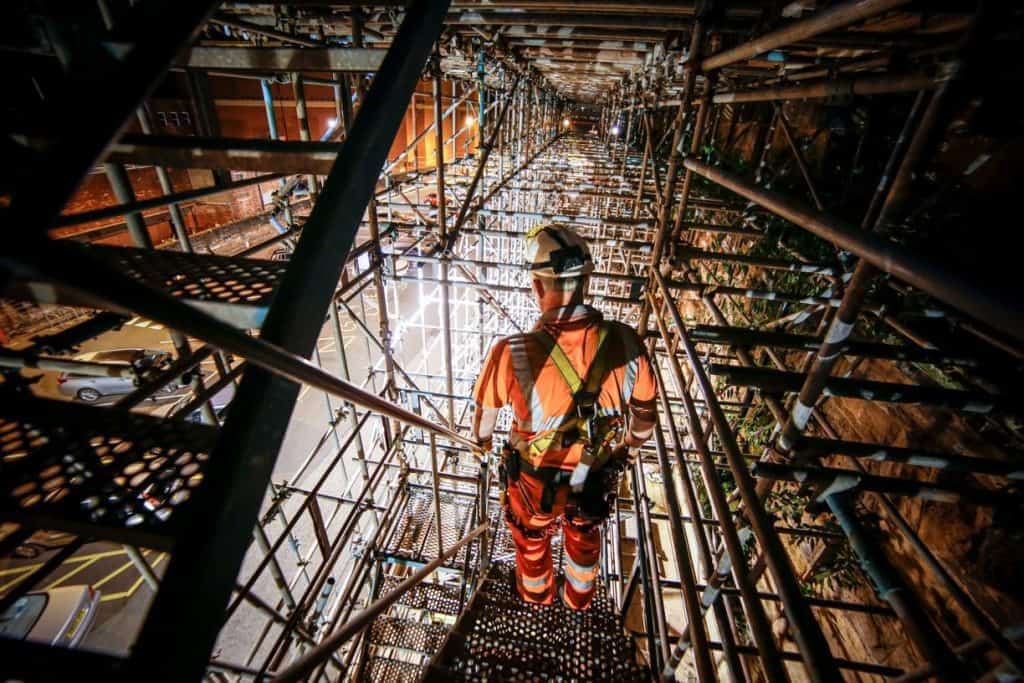 The Levenseat EfW plant and MRF waste management site by Forth in Lanark and the Viridor ERF plant by Dunbar in East Lothian, are all set to benefit from the company’s skills. They’ll be joined by the Port Clarence renewable energy plant by Tees Dock in Teesside near Middlesbrough. The agreements mark entry into a new established industrial sector marketplace, taking in the expanding waste energy sector.
“The scale and wide variety of safe scaffolding required on contracts like these makes Palmers the perfect choice,” said Palmers Scaffolding UK Limited Managing Director, Lindsay Harle.
“Industrial scaffolding is one of the sectors we have excelled at for decades and it’s fantastic to be involved with such modern, high quality construction and energy projects in Scotland and the North East. We are fully committed to developing long term relationships with our clients on prestigious contractual work like this and we can provide an economic and versatile service that not only meets but exceeds our customer’s requirements.”
A Palmers client, the M and W Group UK, currently run the sites at Levenseat and Lanark. Both involve a variety of tube and fitting system scaffolding solutions to help create 123MWe energy from a waste plant and the adjacent Materials Recycling Facility. The project will recycle more than a million tonnes of materials including plastics, metals, paper and aggregates over its lifetime. It is expected to save 1.3 million tonnes of CO2e emissions, divert more than 1.4 million tonnes of waste from landfill, and produce enough electricity to supply the equivalent of almost 18,000 homes over its lifetime.
The Material Recycling Facility (MRF) is designed to process 42 tonnes per hour of commercial and industrial waste with an annual capacity more than 200,000 tonnes. Palmers scaffolding solutions are providing essential support in these tasks. The £177 million project at the Viridor ERF plant in East Lothian is integral to the Scottish Government’s ambitions to deliver a zero waste, circular economy, encouraging waste reduction, boosting recycling and recovering vital renewable energy from what remains. The site will generate 30MW of base-load renewable energy direct to the grid – the equivalent of 39 wind turbines – enough to continuously power 39,000 homes. This plant will offer up to 10MW of heat for local use and is supporting at least 350 jobs during construction, including many of Palmers advanced scaffolders.
The Port Clarence Renewable Energy Plant is a major outlet for waste wood in the North East. Run by Lagan Construction Group it will have capacity to treat an estimated 325,000 tonnes of waste wood per year. When finished, the plant will generate around 40MW of power – the equivalent of powering around 75,000 homes in Tees Valley and elsewhere in the North East. The development at Port Clarence will create 30 direct jobs and support a further 300 jobs at the peak of the build.
Ian McFarlane Director Business & Project Development added: “We have the experience, equipment and excellence to deal with whatever is required – from the early design phases, through erection to striking. This all helps keep these exciting, essential contracts on time and on budget.”
The Levenseat EfW plant and MRF waste management site by Forth in Lanark and the Viridor ERF plant by Dunbar in East Lothian, are all set to benefit from the company’s skills. They’ll be joined by the Port Clarence renewable energy plant by Tees Dock in Teesside near Middlesbrough. The agreements mark entry into a new established industrial sector marketplace, taking in the expanding waste energy sector.
“The scale and wide variety of safe scaffolding required on contracts like these makes Palmers the perfect choice,” said Palmers Scaffolding UK Limited Managing Director, Lindsay Harle.
“Industrial scaffolding is one of the sectors we have excelled at for decades and it’s fantastic to be involved with such modern, high quality construction and energy projects in Scotland and the North East. We are fully committed to developing long term relationships with our clients on prestigious contractual work like this and we can provide an economic and versatile service that not only meets but exceeds our customer’s requirements.”
A Palmers client, the M and W Group UK, currently run the sites at Levenseat and Lanark. Both involve a variety of tube and fitting system scaffolding solutions to help create 123MWe energy from a waste plant and the adjacent Materials Recycling Facility. The project will recycle more than a million tonnes of materials including plastics, metals, paper and aggregates over its lifetime. It is expected to save 1.3 million tonnes of CO2e emissions, divert more than 1.4 million tonnes of waste from landfill, and produce enough electricity to supply the equivalent of almost 18,000 homes over its lifetime.
The Material Recycling Facility (MRF) is designed to process 42 tonnes per hour of commercial and industrial waste with an annual capacity more than 200,000 tonnes. Palmers scaffolding solutions are providing essential support in these tasks. The £177 million project at the Viridor ERF plant in East Lothian is integral to the Scottish Government’s ambitions to deliver a zero waste, circular economy, encouraging waste reduction, boosting recycling and recovering vital renewable energy from what remains. The site will generate 30MW of base-load renewable energy direct to the grid – the equivalent of 39 wind turbines – enough to continuously power 39,000 homes. This plant will offer up to 10MW of heat for local use and is supporting at least 350 jobs during construction, including many of Palmers advanced scaffolders.
The Port Clarence Renewable Energy Plant is a major outlet for waste wood in the North East. Run by Lagan Construction Group it will have capacity to treat an estimated 325,000 tonnes of waste wood per year. When finished, the plant will generate around 40MW of power – the equivalent of powering around 75,000 homes in Tees Valley and elsewhere in the North East. The development at Port Clarence will create 30 direct jobs and support a further 300 jobs at the peak of the build.
Ian McFarlane Director Business & Project Development added: “We have the experience, equipment and excellence to deal with whatever is required – from the early design phases, through erection to striking. This all helps keep these exciting, essential contracts on time and on budget.” UK Driven Training Centre In Vietnam
A leading industrial trainer in the North East of England has opened a training centre in Vietnam.
AIS Training’s state-of-the-art centre will be run in conjunction with their partner in the territory Black Cat, to help train more than 200 employees. It’s also expected to service the training requirements of the lucrative Indo-China oil and gas and construction markets. This move will strengthen the existing business relationship between AIS and Black Cat.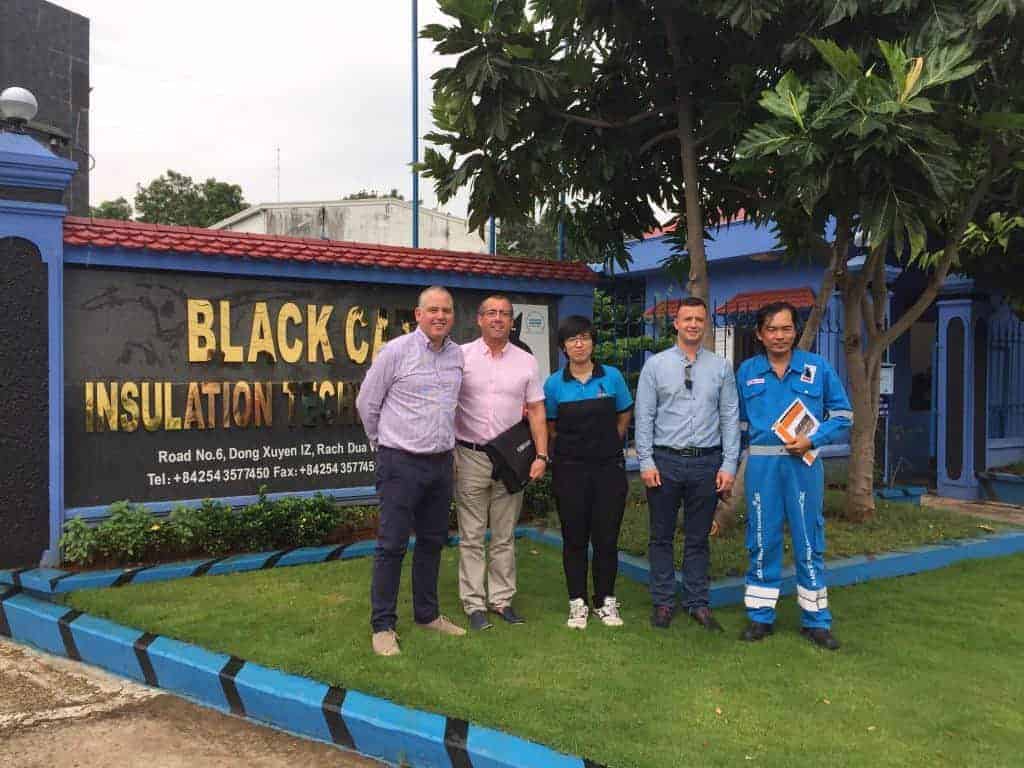
Allround FW System Launches at Layher Open Day
Layher UK announces the launch of a new product at it’s innovation open day.
Global system scaffolding giants Layher announced the UK launch of it’s Allround FW System. The new product was demonstrated yesterday at a packed innovations open day in Letchworth, Hertfordshire. Open day attendees consisted of industry leaders, customers, clients, Layher Germany shareholders including joint Directors, Georg Layher & Carolin Langer, who were all wooed by the colourful launch and practical demonstration of the Allround FW System. Utilising just three additional components the Allround FW system has been designed to offer wide-span bridging arrangements that are entirely compatible with all components of the company’s flagship Allround system.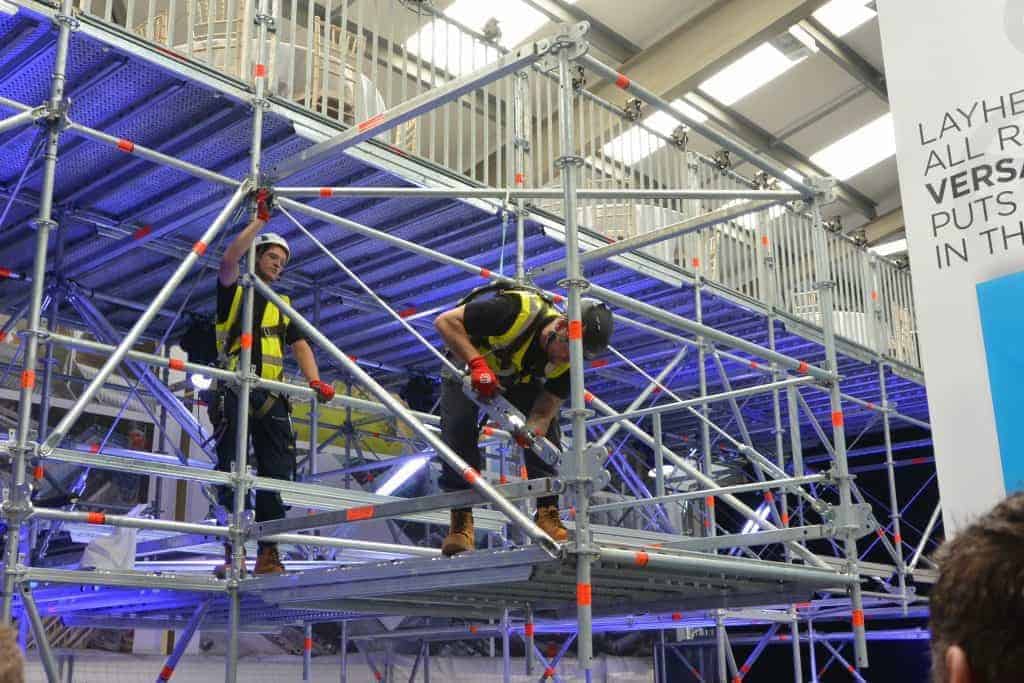 Layher say the Allround FW system is intended to close the current load-capacity gap between their various lattice beam configurations and the Heavy Duty Allround Bridging system.
Speaking to ScaffMag at the open day Layher UK Managing Director Sean Pike said:
Layher say the Allround FW system is intended to close the current load-capacity gap between their various lattice beam configurations and the Heavy Duty Allround Bridging system.
Speaking to ScaffMag at the open day Layher UK Managing Director Sean Pike said:
“We were delighted and privileged to have welcomed such a large group of over 140 people to the innovations open day, and appreciated very much the close customer support from our clients. Our intention was to make the day informative, enjoyable and an experience to remember as well as a platform from which we could launch a major new innovation – Allround FW. At Layher, through customer feedback, we strive to always improve our materials, and make available new business opportunities in other industries for our clients. With the new innovations we always base them around our core product, original Allround scaffolding. We believe that the new Allround FW system compliments the existing range and offers our customers more possibilities…”
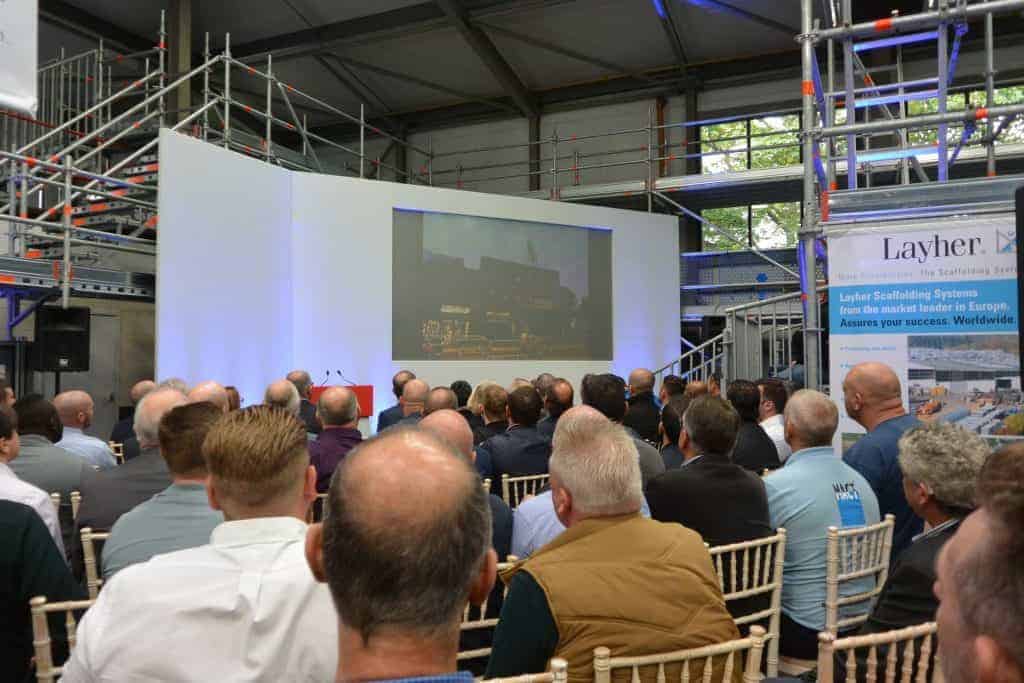 Additionally Layher also updated attendees on multiple product advancements and other new products that included the Allround Steel Toe-Board, U-Transom, Lattice Beam Suspension Shoe Kit and a U-Corner Deck for Circular Scaffolding.
Additionally Layher also updated attendees on multiple product advancements and other new products that included the Allround Steel Toe-Board, U-Transom, Lattice Beam Suspension Shoe Kit and a U-Corner Deck for Circular Scaffolding.
